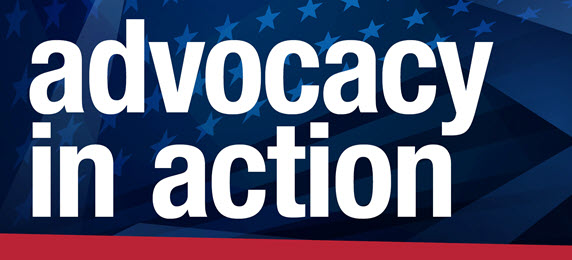
New Exemption to Digital Millennium Copyright Act Broadens Protection for Vehicle Data Access
New rule provides exemption to DMCA that allows vehicle or vessel owners and lessees, or those acting on their behalf, to access, store, and share operational data, including diagnostic and telematics data.
This week, the Librarian of Congress adopted exemptions to the provision of the Digital Millennium Copyright Act (“DMCA”) that prohibits circumvention of technological measures that control access to copyrighted works. Specifically, the rule reaffirms the existing circumvention exemption when circumvention is a necessary step to allow the diagnosis, repair, or lawful modification of a vehicle and grants a new exemption to allow vehicle or vessel owners and lessees, or those acting on their behalf, to access, store, and share operational data, including diagnostic and telematics data. The rule is available online at 2024-24563.pdf. MEMA filed the exemption request and the Auto Care Association testified in support of the exemption at a hearing earlier this year.
“What the exemption does… is broadens that and puts context around it, so that the owner of the vehicle can understand not only the particular diagnostic or repair code, but how that fits into the usage of the vehicle as they themselves are driving it or using it,” said Lisa Foshee, senior vice president, government affairs and general counsel, Auto Care Association. “And so, it protects the owner of the vehicle who wants to understand the whole picture if you will, as opposed to just pulling a specific code off of the vehicle.”
The reasons for the approval are detailed in the Register’s Recommendation, available online at Section 1201 Rulemaking: Ninth Triennial Proceeding Recommendation of the Register of Copyrights, at pp. 195-218. While the new exemption overlaps in some respects with the existing exemption, the new exemption applies to access to operational data beyond purposes of vehicle repair. Helpfully, the Recommendation confirms that the exemption applies beyond the vehicle owners or lessees to those who perform those actions on their behalf.
The National Telecommunications and Information Administration (“NTIA”) of the Department of Commerce supported the exemption, in a letter also attached to this email and available online at 2024_NTIA_DMCA_Letter.pdf. NTIA stated in its comments that:
[w]hile repair is commonly cited as a justification for accessing user data, this proposed exemption covers a different scope than previous triennial rulemaking and should be recognized as a standalone vehicle repair exemption…the existing vehicle repair exemption is focused more on vehicle repair which can only be completed after accessing software. The purpose of the proposed exemption here is to circumvent an access control to permit access to the vehicle generated data for purposes of understanding that data and not to specifically repair the vehicle, which may require an additional step including using the existing vehicle repair exemption. NTIA Comments, at 62.
NTIA went on to say that “the data generated by the vehicle’s performance is owned by the consumer and contrary assertions are otherwise unconvincing to justify preventing access to that data.” NTIA Comments, at 62. NTIA believes that the exemption gives “consumers the ability to obtain and share data directly produced by their vehicles, while remaining within the existing parameters of regulatory compliance and safety regulations.” Id. Finally, NTIA stated that “[p]rivacy concerns are a red herring as the user, who is the owner of the data, should be able to control the disclosure of their own data.” NTIA Comments, at 64.
The DOJ Antitrust Division and FTC also supported the new exemption. The agencies argued that the new exemption would “promote competition in markets for replacement parts, repair, and maintenance services, as well as facilitate competition in markets for repairable products. Eliminating repair restrictions can lower the costs of repairs, improve access to repair services, and minimize costly and inconvenient delays. Unnecessary repair restrictions have the opposite effect. They can reduce consumer choice, raise repair costs, and drive independent repair shops out of business by denying them access to key inputs.”
The Alliance for Automotive Innovation (Auto Innovators) opposed the new exemption as it relates to personal vehicles, arguing that proponents lack evidence showing that limited access to data harms users by impeding their ability to repair their personal vehicles. Further, Auto Innovators argued that proponents do not address existing alternatives for accessing this data, such as the Right to Repair Agreement for third party repair entities. The Librarian was not persuaded by these arguments.
For questions or more information, please contact Lisa Foshee, senior vice president, government relations and general counsel, Auto Care Association, at lisa.foshee@autocare.org.

Your Association's government affairs staff works 24/7/365 on your behalf to fight policies and regulations that may be harmful to your business. Here you'll find the latest updates on their issue-related work including testimonies, hearings, meetings, comments and actions.
More posts
Content
-
2021 Auto Care Advocacy Report
March 24, 2022Advocacy is essential, and by adding your voice, our impact adds up. This report details our 2021 efforts across all three facets of advocacy: grassroots, lobbying and PAC. However, in order to be effective, we must have your support and engagement. The 2021 Advocacy Report details ways you can get involved - and we made it as easy as 1, 2, 3.
